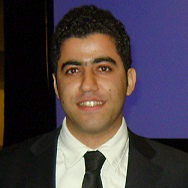Connectivity Can’t Unlock the Internet’s Promise Without Human Rights
By Peter Micek (Access Now) and Carolina Rossini (VP at Public Knowledge)
IEEE Internet Initiative eNewsletter, September 2016
We’re at a pivotal moment in the development of the Internet. Right now, government representatives, engineers, members of development agencies, civil society groups, and tech executives are gathering in forums across the world to achieve a single, monumental goal: bringing everyone online by 2020.
Yet so far the commitments stakeholders have made to connect the world to the Internet have largely failed to give human rights center stage. Despite recent global agreements such as the U.N. Human Rights Council’s resolution declaring that human rights apply online just as they do offline, we’re not putting enough emphasis on ensuring that when we connect people to the Internet, those connections are open, secure, and interoperable. It’s absolutely critical that we do not encourage or reward connectivity that exacerbates existing inequalities, censorship, or unlawful surveillance.
Leveraging the Internet for development
Over the past five years, the Internet has accounted for 21 percent of GDP growth in mature economies, according to McKinsey research [1]. The World Bank’s 2016 World Development Report also noted that digital technologies have boosted economic growth, expanded opportunities, and improved service delivery. More broadly, the Internet has fostered a free-speech zone that supports engagement in culture, the economy, and politics.
Yet the Internet’s aggregate impact has fallen short of what’s possible -- because this growth and engagement is unevenly distributed and because, in many countries, the Internet is increasingly insecure and censored.
In fact, the majority of the world’s population does not have access to the Internet. When people do have access, governments sometimes use the Internet for malicious ends, placing entire populations under the harsh glare of surveillance or in the confines of censorship. Some marginalized Internet users suffer the worst of both worlds; only 3.7% of Ethiopians enjoy access to the Internet, but when they go online, they must endure hacking and surveillance, victimized by the invasive hardware and software that is widely available on the open market. As human rights and development advocates, we question how so many people can remain cut off from the Internet, or be connected in a way that harms their rights, despite the millions of dollars in foreign aid directed to the ICT sector from countries like China and the United States, and from institutions like the World Bank.
Connectivity, development, and human rights are interlinked and interdependent. If implemented intentionally, they can create a virtuous cycle. The United Nations has tied every global sustainable development goal to universal, affordable Internet access, while other international organizations, such as the International Telecommunications Union, trumpet the importance of Connecting the World.
The U.S. State Department launched the Global Connect Initiative last year to make Internet access a priority for foreign aid and policy. The initiative pulls together stakeholders from around the world -- including the World Bank and IEEE -- to sign onto principles that target funding and infrastructure investment for 1.5 billion people. So far, the initiative counts more than 40 countries as partners, and has announced 65 new and existing initiatives valued at over $20 billion during the 2016 spring meeting of the World Bank [2]. World Bank President Jim Yong Kim and Secretary of State John Kerry drew direct links in their speeches about Global Connect between development and access to the Internet.
However, connectivity alone cannot form global development policy. People should have universal access to an affordable Internet that is open, secure, and reliable. They must also be able to exercise their access under a framework that supports freedom of expression and privacy. Respect for human rights must go hand-in-glove with the drive to connection. This is the important notion that the U.N. Human Rights Council endorsed through its resolution. It condemned countries that intentionally disrupt citizens' Internet access -- commonly called Internet shutdowns -- and reaffirmed that "the same rights people have offline must also be protected online.” [3]
Reflecting international human rights standards
What are the human rights standards that we should follow? The U.N. Human Rights Council has affirmed “the importance of applying a human rights-based approach in providing and in expanding access to Internet [4],” while calling on “all States to make efforts to bridge the many forms of digital divides” and in particular “the gender digital divide.” The council called on states to “enhance the use of enabling technology, in particular information and communications technology, to promote the empowerment of all women and girls.”[5] Maina Kiai, U.N. Special Rapporteur on the freedoms of peaceful assembly and association, recently wrote, “When funds are provided to governments or private companies to implement development projects, banks should always ensure that human rights are respected.” [6] Policymakers like Hillary Clinton, who championed “Internet freedom” while at the U.S. State Department, have also stressed the need to promote human rights online.
Building connectivity with human rights by design
Technical architecture reflects and enforces values. We must ensure that the architectural design for connectivity fits seamlessly in the framework of human rights. Our policies, investment decisions, and new technologies should be designed in such a way that the fit for human rights can serve as a continuous benchmark.
Women -- proven to be drivers of economic growth and wealth -- are about 50% less likely than their male peers to be connected to the Internet. Education and age also serve as key indicators of inequality when it comes to connectivity. When projects like the Global Connect initiative make decisions about investment and support, they should consider the context, and create transparent, bottom-up processes for accountability.
History supports this approach: the Internet itself grew through inclusive, horizontal input, integrating diverse networks under common standards. This has made the Internet an extraordinary engine for innovation, resilient and extremely powerful. Every stakeholder has a role to play in ensuring its continued development as a platform for growth and the exercise of human rights, not just development agencies or governments.
Putting the pieces together
The good news is that many stakeholders are already independently working to implement human rights in their protocols. Engineers are creating privacy by design when they integrate robust encryption in communications tools and information networks. These measures can help protect us against unlawful surveillance by state and non-state actors.
The Internet Research Task Force is making progress here as well. Its Human Rights Protocol Considerations Research Group is working hard to develop standards to help the technical community and businesses integrate human rights into their products and services.
Development initiatives should do the same when it comes to funding, creating policy to support human rights online. For instance, they should not support projects that will enable censorship. Countries that have a documented history of abusing human rights online -- by monitoring the Internet through Deep Packet Inspection, for example, or by jailing journalists, human rights defenders, or dissidents -- should not receive support unless they can make explicit human rights commitments. When telecommunications companies are state-run or state-owned, they should undergo special scrutiny. Development initiatives should assess these commitments periodically, and not only for the initial grant award.
To integrate efforts, we need shared principles for connectivity
Civil society also has a role to play in connecting people to the Internet with human rights “baked in.” In the context of the Global Connect initiative, we’ve assembled a coalition of organizations that are drafting a set of principles to guide connectivity efforts. Here are some of the key recommendations we’re exploring:
- Conduct a Human Rights Impact Assessment for each connectivity project. The assessment should assess, at a minimum, the context for freedom of expression and privacy in the implementing location, and also examine how the project will respect and protect human rights. Just like an Environmental Impact Assessment, if the conditions are not met, the connectivity project should be modified or canceled.
- Design ICT policies and practices based on respect for human rights online and off, upholding net neutrality, the rule of law, and connectivity;
- Invest in Internet connectivity based on a core understanding that the Internet is a global resource and that it should be managed in the public interest as a democratic, secure, free, open, inclusive, and pluralistic communication platform;
- Support public access facilities, such as libraries, which amplify connectivity and sustainable development;
- Support and invest in unlicensed and open spectrum to expand connectivity within communities;
- Foster digital literacy, and promote the development of locally relevant content, applications, and services, which increase the Internet’s social and economic value to people, families, and communities [7];
- Create enabling environments that focus not only on connectivity, but also entrepreneurship, cross-border information flows, and open and competitive marketplaces [8];
- Promote the sharing of infrastructure to encourage cost-savings and interoperability;
- Lower barriers to entry for access providers with targeted subsidies; and
- Ensure that public-private partnerships are more transparent and accountable.
Human rights are key to the future of the Internet. The time is now to make sure they're part of every connectivity effort.
Over the coming months, we’ll continue strengthening these principles through an interdisciplinary working group. We’ll also work with governments and funders to form inclusive regional councils with participants from different backgrounds, and develop frameworks that support accountability for Global Connect finance mechanisms. We ask you to join us, support the initiative, and speak out. Each of us has a stake in making sure that when we connect the world to the Internet, we don’t abandon human rights in the process.
References
[1] James Manyika, Charles Roxburgh, "The great transformer:The impact of the Internet on economic growth and prosperity", McKinsey Global Institute, October 2011.
[2] "Remarks For Global Internet Policy And The U.S.-Japan Alliance" , States News Service, May 10 2016 Issue http://www.state.gov/e/eb/rls/rm/2016/257056.htm
[3] "Human Rights Council Extends The Mandates On Internally Displaced Persons And On Violence Against Women", States News Service, July 1 2016 Issue
[4] “The promotion, protection and enjoyment of human rights on the Internet”, Human Rights Council, Thirty-second session, pp.1-4, 27 June 2016
[5] Sustainable Development Goals, Post-2015 Women’s Coalition, http://www.post2015women.com/sustainable-development-goals/
[6] Maina Kai, “It’s Time for Development Banks to Start Listening”, Foreign Policy, 19 July 2016
[7] "Keynote Address On "Development Of The Digital Industry In Latin America" At ECLAC/CEPAL Workshop" , States News Service, May 18 2016 Issue, http://www.state.gov/e/eb/rls/rm/2016/257326.htm
[8] "Department Of State Co-Hosts Global Connect Event With World Bank" , States News Service, April 13 2016 Issue http://www.state.gov/r/pa/prs/ps/2016/04/255796.htm
 Peter Micek
Peter Micek
Peter Micek is Global Policy & Legal Counsel at Access Now, a digital rights organization, and Lecturer at the Columbia University School of International and Public Affairs. Peter leads the Access Now policy team's business and human rights work, advocating for a more rights-respecting telecom and tech sector. Through direct corporate engagement, norm-building at the United Nations, and investor advocacy, Peter helps Access Now to promote transparency and accountability for digital rights online. As Lecturer at Columbia on internet governance, Peter’s course focuses on the structures and processes that determine public policy in the digital age.
A lawyer by training, Peter completed a JD cum laude at the University of San Francisco School of Law, and in 2010 published "A Genealogy of Home Visits," critiquing surveillance of at-risk communities, in U.S.F. Law Review. As a law student, Peter defended independent journalists and engaged in freedom of information litigation at First Amendment Project. For five years, in his native San Francisco, Peter led youth and ethnic media development at New America Media, and was Web Editor at KALW's daily radio program Your Call. Peter studied political science and journalism at Northwestern University in Evanston, IL. He is licensed by the state bars of California and New York, and has no cats.
 Carolina Rossini
Carolina Rossini
Carolina Rossini, a Brazilian lawyer with over 15 years of experience, is the Vice President for International Rights and Strategy at Public Knowledge and a 2016 World Economic Forum Young Global Leader. Alongside her work at Public Knowledge, she is a Global Partners Digital International Associate and an X-Lab fellow. She sits on several advisory boards, including at Open Knowledge Foundation, CodingRights, Instituto Educadigital, and InternetLab. She is the founder of OER-Brazil, www.rea.net.br.
Previously, Carolina was a Project Director at New America Foundation’s Open Technology Institute, the International Intellectual Property Director at Electronic Frontier Foundation (EFF), and a Fellow at the Berkman Center at Harvard University. Back in Brazil, she was a in-house council for Terra Networks S/A, part of Telefonica Economic Group, and a law lecturer and project coordinator at the Center for Technology and Society and Fundação Getulio Vargas.
Carolina has an LLM in Intellectual Property from Boston University, a MBA from Instituto de Empresas, a MA in International Economic Negotiations from UNICAMP/UNESP, and a JD from University of Sao Paulo – USP.
Editor:
 Dr. Reza Malekian
Dr. Reza Malekian
Dr. Reza Malekian (M'12) is currently a Senior Lecturer with the Department of Electrical, Electronic, and Computer Engineering, University of Pretoria, Pretoria, South Africa and an Assistant Professor (attache) in the Departamento de Ingeniería Informática, Universidad de Santiago de Chile, Chile. His research is focused on Internet of Things, mobile Internet, Advanced sensor networks and mobile communications under industry and government funding.
Dr. Malekian is also a Chartered Engineer registered with the Engineering Council of UK, a professional member of the British Computer Society (BCS), and a member of the IEEE. He is an associate editor for the IEEE Internet of Things Journal as well as lead guest editor for a special issue titled “Internet of Things and Sensors Technologies for Intelligent Transportation Systems” in IEEE Transactions on Intelligent Transportation Systems
Article Contributions Welcomed
If you wish to have an internet policy related article considered for publication, please contact the Managing Editor of Technology Policy and Ethics IEEE Future Directions Newsletter.
Past Issues
IEEE Internet Policy Newsletter Editorial Board
Dr. Ali Kashif Bashir, Interim Editor-in- Chief
Dr. Syed Hassan Ahmed
Dr. Mudassar Ahmad
Dr. Onur Alparslan
Dr. Muhammad Bilal
Dr. Syed Ahmad Chan Bukhari
Dr. Ankur Chattopadhyay
Dr. Junaid Chaudhry
Dr. Waleed Ejaz
Dr. Yasir Faheem
Dr. Prasun Ghosal
Dr. Tahir Hameed
Dr. Y. Sinan Hanay
Dr. Shagufta Henna
Dr. Fatima Hussain
Dr. Rasheed Hussain
Dr. Saman Iftikhar
Dr. Stephan Jones
Dr. Mohammad Saud Khan
Olga Kiconco
Dr. Jay Ramesh Merja
Dr. Mubashir Husain Rehmani
Dr. Hafiz Maher Ali Zeeshan
About: This newsletter features technical, policy, social, governmental, but not political commentary related to the internet. Its contents reflect the viewpoints of the authors and do not necessarily reflect the positions and views of IEEE. It is published by the IEEE Internet Initiative to enhance knowledge and promote discussion of the issues addressed.


